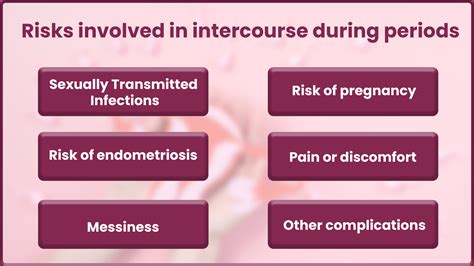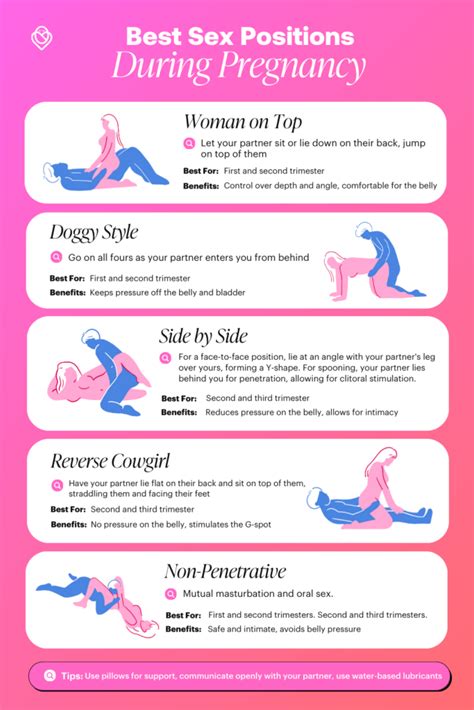Intro
Discover safe intercourse during pregnancy, minimizing risks and complications, with expert guidance on prenatal sex, intimacy, and fetal well-being.
Pregnancy is a significant life event that brings numerous changes to a woman's body, and it's natural for expectant mothers to have concerns about their health and well-being. One common concern is about the safety of intercourse during pregnancy. Many women wonder if it's safe to have sex while pregnant, and if so, what precautions they should take to ensure a healthy pregnancy. In this article, we'll delve into the topic of pregnancy intercourse safety, discussing the benefits, risks, and guidelines for a safe and enjoyable experience.
As the body undergoes various changes during pregnancy, it's essential to understand how these changes can impact intimacy and relationships. Hormonal fluctuations, physical discomfort, and emotional stress can all affect a woman's libido and overall well-being. However, with proper guidance and precautions, many women can continue to enjoy a healthy and fulfilling sex life throughout their pregnancy. It's crucial to consult with a healthcare provider to discuss any concerns or questions about intercourse during pregnancy, as they can provide personalized advice and recommendations.
The importance of open communication and education cannot be overstated when it comes to pregnancy intercourse safety. Expectant mothers and their partners should feel comfortable discussing their desires, concerns, and boundaries to ensure a mutually enjoyable and safe experience. By understanding the benefits and risks associated with intercourse during pregnancy, couples can make informed decisions about their sex life and take necessary precautions to minimize any potential risks. Whether you're an expectant mother or a supportive partner, it's essential to prioritize education, communication, and mutual respect to navigate the complexities of pregnancy intercourse safety.
Pregnancy Intercourse Benefits

Physical and Emotional Changes
During pregnancy, women undergo significant physical and emotional changes that can impact their sex life. Some common changes include: * Increased blood flow and sensitivity: Hormonal fluctuations can cause increased blood flow and sensitivity in the genital area, potentially leading to more intense orgasms. * Breast tenderness: Breast tenderness and sensitivity are common during pregnancy, and some women may find that their breasts are more sensitive to touch. * Fatigue and discomfort: Physical discomfort, fatigue, and mood swings can all impact a woman's libido and overall desire for intimacy. * Emotional stress: The emotional stress of pregnancy, combined with concerns about the baby's health and well-being, can all take a toll on a woman's mental health and relationships.Pregnancy Intercourse Risks

Guidelines for Safe Intercourse
To minimize the risks associated with intercourse during pregnancy, it's essential to follow some basic guidelines. These guidelines include: * Communicating with your partner: Open and honest communication with your partner can help ensure that you're both comfortable and aware of any potential risks or concerns. * Using protection: Using condoms or other forms of protection can help reduce the risk of infection and other complications. * Avoiding deep penetration: Deep penetration can cause discomfort and potentially stimulate the uterus, so it's essential to avoid deep penetration, especially during the later stages of pregnancy. * Avoiding rough sex: Rough sex or other activities that can cause physical trauma should be avoided, as they can increase the risk of complications and discomfort.Pregnancy Intercourse Positions

Intimacy and Relationships
Pregnancy can bring significant changes to relationships, and it's essential to prioritize intimacy and communication. Some tips for maintaining a healthy and fulfilling relationship during pregnancy include: * Scheduling regular date nights: Regular date nights can help maintain intimacy and connection, even during the challenges of pregnancy. * Practicing emotional intimacy: Emotional intimacy is just as important as physical intimacy, and practicing empathy, active listening, and open communication can help strengthen your relationship. * Seeking support: Seeking support from friends, family, or a therapist can help you navigate the challenges of pregnancy and maintain a healthy and fulfilling relationship.Pregnancy Intercourse and Sex Drive

Communicating with Your Partner
Open and honest communication with your partner is essential for maintaining a healthy and fulfilling relationship during pregnancy. Some tips for communicating with your partner include: * Practicing active listening: Active listening involves fully engaging with your partner, understanding their concerns and desires, and responding with empathy and understanding. * Using "I" statements: Using "I" statements can help avoid blame and defensiveness, promoting a more constructive and respectful conversation. * Seeking support: Seeking support from friends, family, or a therapist can help you navigate the challenges of pregnancy and maintain a healthy and fulfilling relationship.Pregnancy Intercourse and Health

Pregnancy Intercourse and Fetal Health
While intercourse during pregnancy is generally safe, it's essential to prioritize fetal health and well-being. Some potential risks to fetal health include: * Infection: Women with a history of infection or those who are at risk of infection may be advised to avoid intercourse or use protection to reduce the risk of transmission. * Preterm labor: Women at risk of preterm labor may be advised to avoid intercourse or other activities that can stimulate the uterus. * Placenta previa: Women with placenta previa, a condition where the placenta covers the cervix, may be advised to avoid intercourse to reduce the risk of bleeding.Pregnancy Intercourse and Postpartum Recovery

Postpartum Intimacy and Relationships
Postpartum intimacy and relationships can be challenging, but with open communication, empathy, and understanding, couples can navigate the complexities of postpartum recovery and maintain a healthy and fulfilling relationship. Some tips for postpartum intimacy and relationships include: * Scheduling regular date nights: Regular date nights can help maintain intimacy and connection, even during the challenges of postpartum recovery. * Practicing emotional intimacy: Emotional intimacy is just as important as physical intimacy, and practicing empathy, active listening, and open communication can help strengthen your relationship. * Seeking support: Seeking support from friends, family, or a therapist can help you navigate the challenges of postpartum recovery and maintain a healthy and fulfilling relationship.Is it safe to have intercourse during pregnancy?
+Yes, intercourse during pregnancy is generally safe, but it's essential to consult with your healthcare provider and follow their guidelines and recommendations.
What are the benefits of intercourse during pregnancy?
+Intercourse during pregnancy can have several benefits, including reduced stress and anxiety, improved mood, and increased intimacy.
What are the risks of intercourse during pregnancy?
+The risks of intercourse during pregnancy include preterm labor, infection, and placenta previa, but these risks can be minimized by following guidelines and recommendations from your healthcare provider.
How can I maintain intimacy and relationships during pregnancy?
+Maintaining intimacy and relationships during pregnancy requires open communication, empathy, and understanding, as well as prioritizing rest, recovery, and self-care.
What are the best intercourse positions during pregnancy?
+The best intercourse positions during pregnancy include side-lying, spooning, and woman-on-top positions, which can help minimize discomfort and maximize pleasure.
In conclusion, pregnancy intercourse safety is a complex and multifaceted topic that requires open communication, education, and empathy. By understanding the benefits, risks, and guidelines for safe intercourse during pregnancy, couples can make informed decisions about their sex life and maintain a healthy and fulfilling relationship. Whether you're an expectant mother or a supportive partner, it's essential to prioritize education, communication, and mutual respect to navigate the complexities of pregnancy intercourse safety. We invite you to share your thoughts, experiences, and questions in the comments below, and to explore our other resources and articles on pregnancy, intimacy, and relationships.
